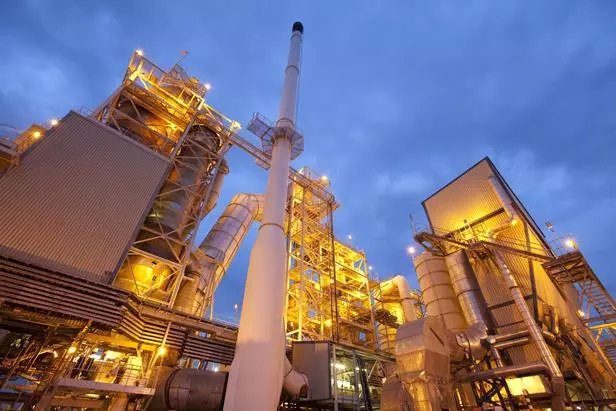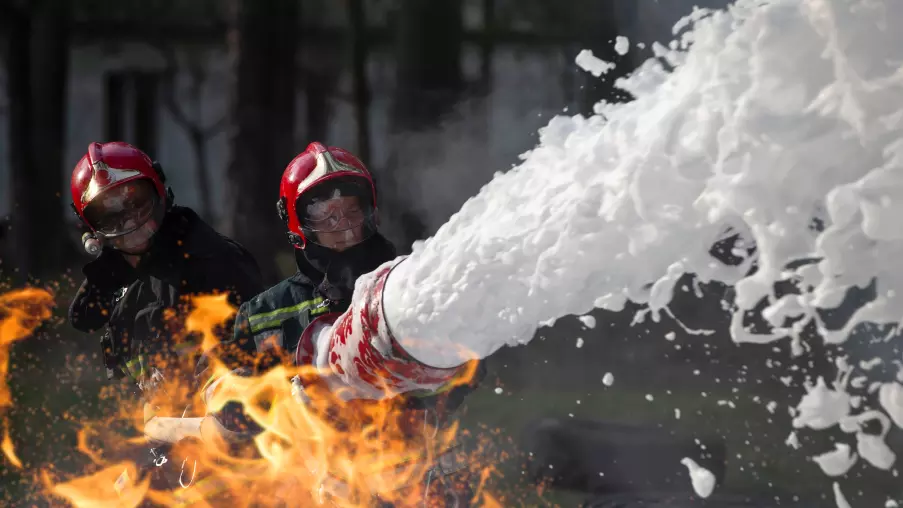What are PFAS?
PFAS (per- and polyfluoroalkyl substances) are man-made chemicals that are used in a wide variety of applications, from textiles and non-stick kitchenware to firefighting foam and industrial applications. Studies show they are persistent in our environment and can cause widespread contamination of water and soil.
To try and combat the problem, the UK Government is introducing a series of regulatory measures to restrict the use of PFAS. This includes new legislation, with a ban on all AFFF (aqueous film forming foam) fire suppressants containing Perfluorooctanoic acid (PFOA) - a type of PFAS - effective from July 2025.
How do PFAS affect the environment?
Scientific studies suggest that some PFAS can pose a significant environmental threat due to their persistence and potential for bioaccumulation, meaning that they gradually build up within an organism over time. As well as contaminating water and soil, it has also been shown that some PFAS can impact ecosystems and human health. There are more than 10,000 different PFAS molecules; however, of the ones that can be tested and identified, PFAS contamination has been detected at over 1,500 sites in the UK.
When are PFAS being banned?
The UK Government began implementing legislation relating to PFAS in 2005, with the General Product Safety Regulations (GSPR) including provisions relating to products containing PFAS. Other legislation has come into effect regulating the use of POPs (persistent organic pollutants)*.
AFFFs are firefighting foams that have been extensively used for a number of years to combat flammable liquid fires across a range of applications covering the aviation, petrochemical, military, oil and gas, fire service and industrial sectors. However, the use of these foams, which contain certain PFAS*, has been banned in the UK this year as they have potential bioaccumulative toxicity, which may impact both the environment and human health. After the ban comes into effect in July 2025, existing stock must be treated in line with strict conditions by a permitted waste management company, like Veolia.
There is currently no plan in place to ban all PFAS, with the UK Government taking a more nuanced approach, focusing on specific pollutants.
*The Stockholm Convention on Persistent Organic Pollutants (POPs) is a global treaty focused on protecting human health and the environment from harmful chemicals. In 2019, the Convention added PFOA (a type of PFAS) to its list of restricted substances, and in 2023, PFHxS was also added. PFOS, another PFAS compound, was listed in 2009. Under the Convention, parties must take measures to eliminate or restrict the production and use of these chemicals. The listing of these PFAS chemicals acknowledges their persistent, bioaccumulative, and toxic nature, as well as their ability to travel long distances in the environment. Countries that are parties to the Convention are required to develop action plans and implement control measures to phase out these substances, though some specific exemptions are allowed for essential uses.
How can businesses dispose of items containing PFAS?
Since 4th July 2025, the use of AFFF containing PFOA - a type of PFAS - has been outlawed. To safely treat PFAS-based AFFF, the specialist treatment at Veolia's High-Temperature Incinerator (HTI) at Ellesmere Port uses temperatures of 1100°C. Our state-of-the-art process has been approved by the Environment Agency, as well as a wide-ranging monitoring and testing programme for all emissions and residues. We expect to achieve up to 99.999% treatment efficiency through this process.
Enquire here to speak to our team and find out how we can treat your AFFF products.
Frequently Asked Questions
Ellesmere Port High-Temperature Incinerator
Our Ellesmere Port High-Temperature Incinerator has a permit from the Environment Agency to treat AFFFs. In a UK first, Veolia has launched a new service to treat AFFF fire suppressants containing certain PFAS* using temperatures of 1100 degrees Celsius at Ellesmere Port, which is playing a crucial role in addressing the estimated 10,000+ tonnes of AFFF applications requiring treatment across the UK.

How can Veolia support you?
Compliance with incoming legislation:
We can help you with the disposal of AFFF products (containing certain PFAS), to ensure you are compliant with the legislation.
Specialist infrastructure:
Thanks to our Ellesmere Port facility, we are able to completely self-deliver the collection and treatment of products containing certain PFAS.
Proven expertise:
Veolia has decades of experience managing hazardous waste - leave PFAS treatment up to the experts and remove the worry from your organisation.
BeyondPFAS:
Veolia, drawing on its hundred-plus years of expertise in providing environmental services, combined with its unique, scientifically proven know-how in treating these complex pollutants, has developed an integrated offer capable of meeting requirements for contaminant treatment and regulatory compliance.
*Substances included in the Environment Agency approved process are:
• Perfluoro-1-hexanesulfonic acid (PFHxS)
• Perfluoro-1-octanesulfonic acid (PFOS)
• 1H, 1H, 2H, 2H-perfluorooctane sulfonic acid (6:2 FTS)
• Perfluorobutanoic acid (PFBA)
• Perfluoropentanoic acid (PFPeA)
• Perfluorohexanoic acid (PFHxA)
• Perfluoroheptanoic acid (PFHpA)
• Perfluorooctanoic acid (PFOA)
• Perfluorononanoic acid (PFNA)




